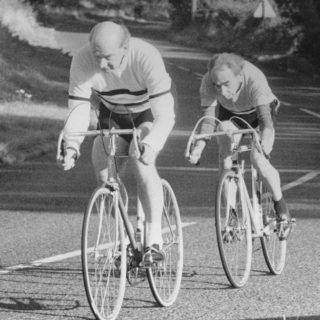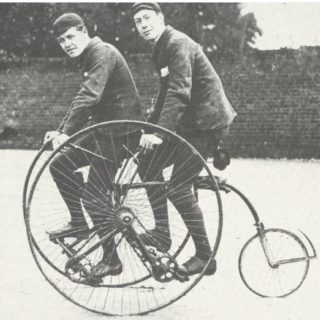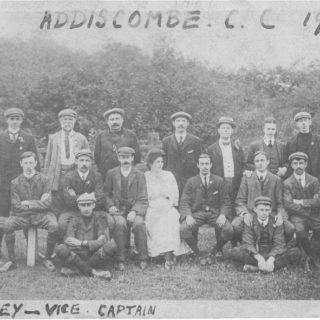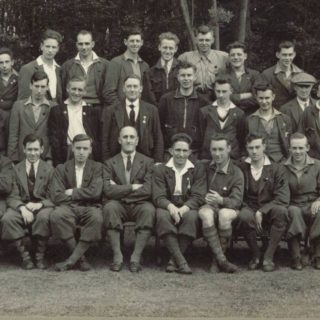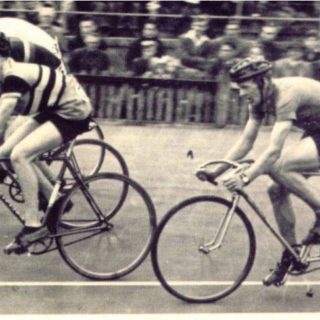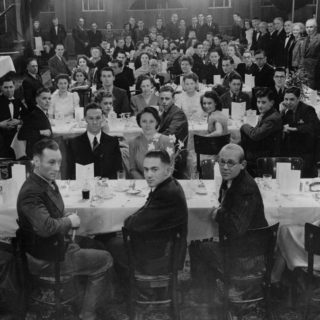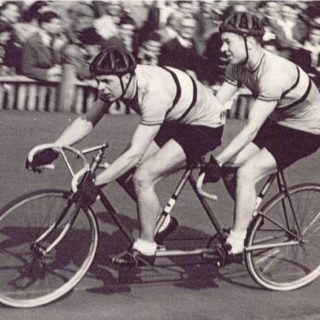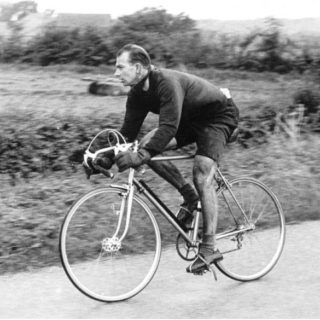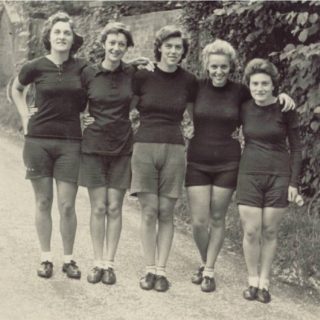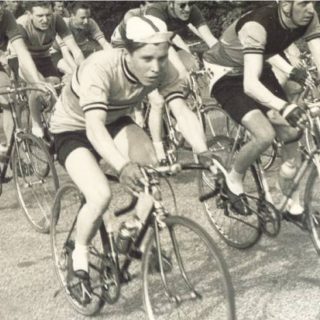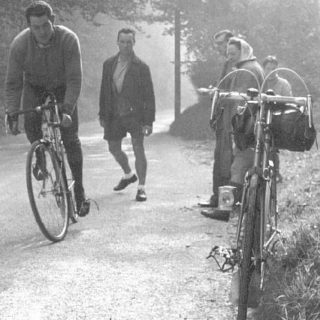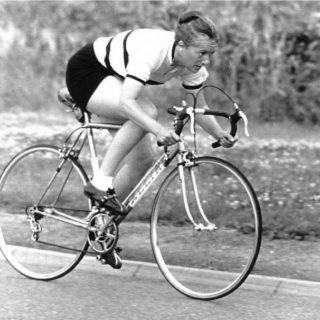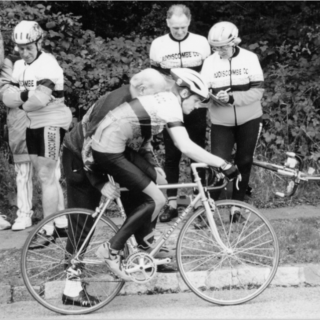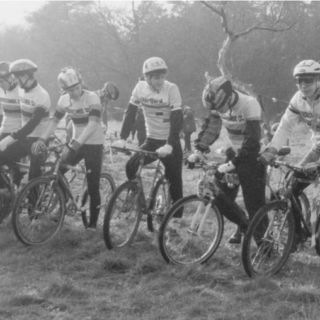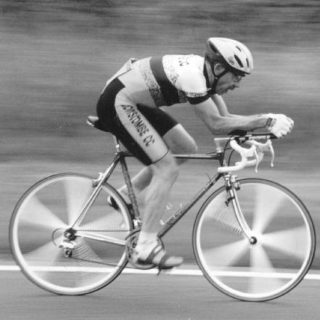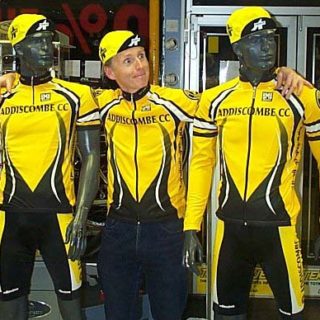History of Addiscombe Cycling Club by Chris Watts
An Introduction to our History
Compiling the early history was relatively straightforward from the first Addiscombe Cycling Club in 1883 through to the early years of the current century including the formation of the present (3rd) Addiscombe Cycling Club. However, by 2006 I was considering...
The 1883 Addiscombe Cycling Club
The first recorded bicycle race took place in France in 1868 and within a year racing was introduced into England with numerous clubs springing up from the 1870’s onwards. In 1878 the Bicycle Union was formed, its aims being to look after cyclists’ rig...
The 1906 Addiscombe Cycling Club
One of the founders of the second Addiscombe Cycling Club was Charles Frederick Davey. His older brother Ted was a member of the Catford Cycling Club. Little is known about Ted but he raced an Ordinary bicycle at Herne Hill.
From a postcard supplied...
An Historical Background to the Road Record Associations
The national Road Records Association was founded in 1888 following a decision by the National Cyclists’ Union to confine their jurisdiction to track competitions, it being imperative that a body was required to continue the work of certifying claims t...
A Brief Historical Background to Cycling Time Trials
Time trials had been held as far back as 1895 when F. T. Bidlake promoted the first North Road 50. An official ban on such events on the highway was brought in by the National Cyclists’ Union in 1897 but not to be outdone cyclists continued ‘secret eve...
The Club’s Revival, 1929 to 1939
In the Cycling magazine, 11th January 1929 the following announcement appeared “With the object of resuscitating the Addiscombe C C, founded in 1906 and now for many years defunct, a meeting has been called for January 15th at the Dorcas Rooms, Clyde H...
The Club in Wartime, 1940 to 1946
By 1940 members were fast disappearing into the armed forces while others were putting in long hours as ARP Wardens (Air Raid Precaution) or auxiliary firemen. The Eleventh Annual Dinner in January 1940 took the form of a luncheon at the County Oak Tea...
The Post-War Years, 1947 to 1957
Because the next ten years were to bring National honours to club members in time trials and on the track, and to both men and women, it has proved preferable to record the disciplines separately.
There was a mood of optimism by 1947 and people could...
Post-War Track and Roller Racing
Roller racing was extremely popular and in use as a form of public entertainment. As a club the Addiscombe had members in excellent form. Contests running for a whole week were frequently held at cinemas as an interlude between films or one-off contests...
The Men in Post-War Time Trials
The majority of members still opted for time trialling as their chosen discipline. It fitted in well with traditional club life and touring and did not necessarily call for any extra equipment or preparation other than for their normal riding. All they...
The Women in Post-War Time Trials
The name of the Addiscombe C.C. continued to be found high up in the results whether the events were on track, road or rollers. Events were strictly single sex until the introduction of “mixed racing” in 1970, by which time the number of women competing had...
Post-War Closed Circuit and Road Racing
Although massed start events had been supported by club members pre-war, with Ernie Mills finishing fourth in the Commonwealth Games RR of 1938 and 2nd in a 10 mile event in Bombay en route home from Australia, the first Addiscombe win is thought to...
An Influx of New Riders and the Passing of a Statesman, 1958 to 1964
Roy Norman starts the club hill climb pushed off by Stan Harvey
1958 had started well with first the January Social, followed by the annual dinner attended by 153 people, and then a Sportman’s Night that included judo, weight lifting, strand p...
The Club Heads Towards its Golden Jubilee, 1965 to 1978
The British League of Racing Cyclists may have brought about radical changes in road racing in the 1940’s but it was 1965 before some major steps occurred in competitive cycling. Hitherto, by regulation, open events less than 25 miles in length were r...
Membership Declines, 1979 to 1987
With the club having celebrated its 50th year it was inevitable that members of the 1930’s were in decline. Charlie Davey, Percy Huggett and Ernie Mills were three who passed their knowledge onto younger members, timekeeping being one of their specialities. T...
The Arrival of the Young Mountain Bikers, 1988 to 1994
The influx of junior ‘mountain bikers’, led by Marco Faimali, certainly breathed new life into the Addiscombe. Ian Joseph wrote an account for The Gazette of a 50-mile sponsored WALK in the Chilterns he and two more of these new members, Marco Faimali and...
Another Period of Declining Membership, 1995 to 1999
Pat Mundy had been a hardworking official of the club for much of her 44 years of membership. She had organised the annual dinner since 1963 and despite recent illness had helped Eddie with the January 1995 function. Two days later everyone was both...
New Century and a New Look for the Addiscombe, 2000 to 2006
The reason for the revival of the Addiscombe appears once again to have been kick-started by Marco Faimali. Following a quiet period on the MTB front, Faimali and Andrew Ince had purchased new machines and by the beginning of the new century they had...

